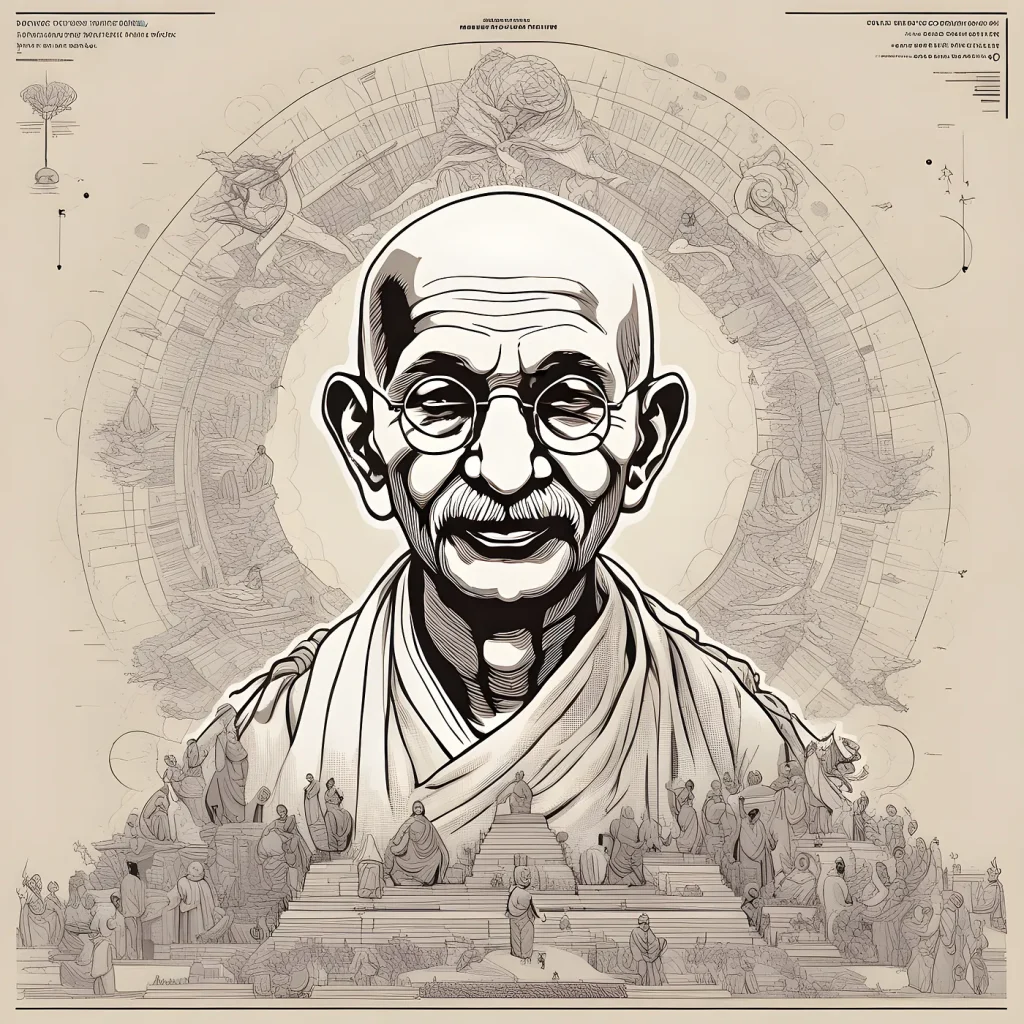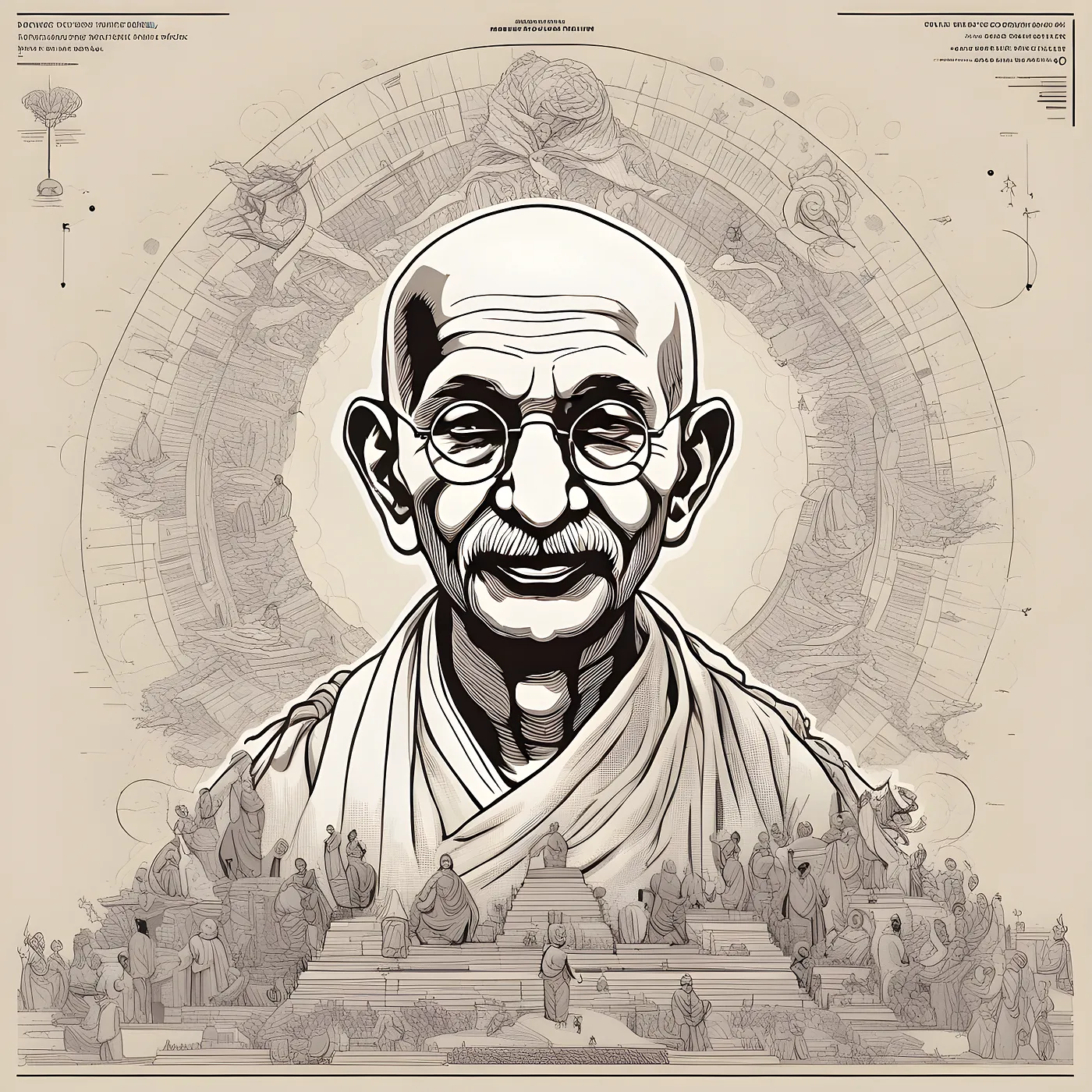When a Hindu brahmin radicalised man shot Gandhi and assassinated him on 30th January 1948, he forever sealed the fate of his own ideology. Hindu radicalization into a violent mob that will destroy everyone who challenges its idea of Nation State or Development today faces its biggest challenge in the undying narrative of Gandhian thoughts and actions. Recently in the midst of the most blatant and brazen act of religious take over, the RSS supremo rephrased a favourite Gandhian idea of Rama Rajya in the consecration ceremony at Ayodhya. For an organization that has opposed Gandhi’s views during his lifetime and inspired the assassin through its Hindu Mahasabha association, it was an irony that he would not cite Savarkar in his moment of gloat. The Prime Minister coming from the same ideological background, late last year welcomed the G20 leaders to the ‘’land of Gandhi’’ in a photo session around the Gandhi Samadhi at Rajghat.

Rama Rajya according to Gandhi was not a religious aspiration as much as an easily understood political communication to reach to a rural audience. In his collected works spread over 100 volumes, there are over 200 instances of him mentioning Rama Rajya, an ideal that he details out along with an assurance that he does not mean it to be specific to Hindus alone. He repeatedly clarifies that Rama Rajya is the same as Khudai Rajya or Kingdom of God on Earth. He even goes on to say that if he were talking in the Northwest Frontier province, he would call it Khudai Raj and if he were addressing predominantly Christians, he would call it a Kingdom of God on Earth.
To him the ideal free Nation State needed to be politically, economically, and morally free from outside influence. He chose morality as according to him, ‘’it is most suitable for the genius of India’’, and what he called India was always the ordinary people of this land.Morality being the core of how they evaluated and lived by, it was the faith in their capacity to lead a moral life that made him repeatedly place moral life as the core of his idea of swaraj.
In making morality as the core, he goes deeper and alludes to the synthesizing nature of the civilizational India rather than the limited idea of the Governance of a Nation State. To give a visual to the rural ordinary people of the land on what such a swaraj or freedom will entail in a language that is easily understood by the majority, he used the term, Rama Rajya. He uses this imagery in the early days addressing rural women, he explains and expands this ideal subsequently in his columns and speeches. It is an easily understandable term that he adopts because the myth of once upon a time everything being fair and justice during the Rajya of Rama is widespread in India and does not need to be elaborated. Time and again question is raised about why he chooses such a term that could easily be misconstrued as a religious one and each time he takes much pain to explain his position. Among the political thinking globally, this conceptualizing on his part challenges the liberal thought completely like no other contemporary political thinking does and thereby is unique and relevant globally then and more so today. The beauty of swaraj is its capacity to allude at the same time to a moral behaviour at the individual level and minimalist democracy at the State level.
Today some people think that there is a revival of Hindu religiousness in India. A celebration of the same is being made out by many and the Ayodhya temple inauguration was conveniently labelled as part of the same revival celebration. Let’s make no mistakes, this new ‘’revival’’ is a pomp and show propped up consumerist culture that neither challenges nor dare to prescribe any morality in personal or public life. Neither does it attempt to acknowledge the diversity of the views that traditionally held together the religiosity of the people of this land. This is not a revival, but a branding of political ideology using popular belief and icons.
The RSS today more emphasizes on the Rama rather than the ideal of Rajya, which Gandhi called Swaraj. Even on the Rama, they are fixated on their own historical narration of Rama rather than the mythical Rama that has traversed through several parts of India and been integrated into local folklore by the synthesizing civilization. Their idea of justice is demanding that every mosque that may have been built in a broken temple land in any part of the country be razed and returned to them, would have appalled Gandhi. He would have been equally appalled at powerful nations that sustain their bloc of economic dominance through war, international treaties, agreements, and other forms of dominance. For such leaders to be standing around Gandhi’s samadhi in notional silence while wars are being played out in global theatres causing death and damage to humans and their habitats is the height of hypocrisy to a person who did not believe in armies.
Individually we live in a world with growing creed of diverse religious belief (unbelief) than ever before – from atheists to blind worshippers of modern science, from religious people who do not practice to those who follow every past practice with renewed vigour, from those who pick and choose their religious practices and belief within their own religion, to those who converge multiple religious practices within their life, the religious practices have never been as diverse in history as it is today.
Our big hypocrisy is the inability of many supposed religious practitioners to reconcile their religiosity to their material lives. Gandhi expanded on this repeatedly in his conception of swaraj, for him the utility of religion was its ability to impose such a code of conduct in the individual and social life. If there were as many irreligious people as there are today during his time, he would have chosen some other term to emphasize morality in personal and public life. I don’t think he would have hesitated to formulate a scientific rajya or even atheist rajyaif he saw the benefit in such an articulation. He would have said – be of whatever religion, but you are all insincere if you do not work for the planet’s sake today! With the depleting world resources, limited time window available to act and save the planet, everyone who does not work for making the planet a better place to inhibit for ourselves, and the generations to come, will be insincere and irreligious people in his view.
Ramasubramanian, Director Samanvaya https://www.samanvaya.com.
Trustee Nammalvar Multiversity.
